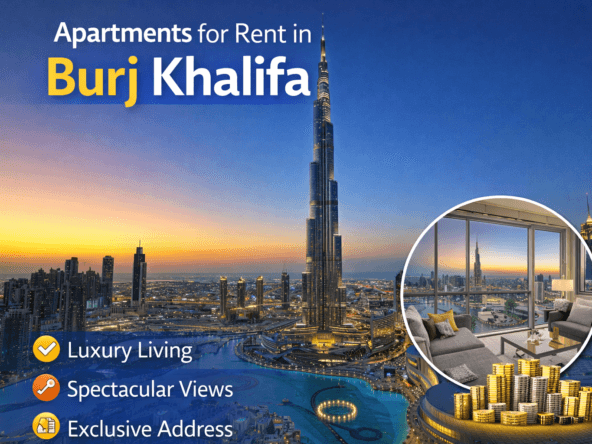Buying a home in Vancouver is a significant financial decision that comes with a blend of advantages and challenges. Known for its breathtaking natural beauty, multicultural environment, and world-class amenities, Vancouver attracts homebuyers from across the globe. But its real estate market is also one of the most expensive in North America. In this detailed guide, we break down the pros and cons of buying a home in Vancouver, helping you make a smarter, more informed choice.
Thank you for reading this post, don't forget to subscribe!Understanding the Vancouver Housing Market
Vancouver’s housing market is often described as dynamic and competitive. It’s influenced by high demand, limited land availability, foreign investment, and a strong economy. The result? Skyrocketing property prices that continue to challenge first-time buyers and even seasoned investors.
Despite market fluctuations, buying a home in Vancouver remains a long-term investment for many. From downtown condos to family homes in the suburbs, the city offers a range of housing options—but at a premium.
Pros of Buying a Home in Vancouver
1. Strong Real Estate Appreciation
One of the biggest benefits of buying a home in Vancouver is the potential for long-term property appreciation. Real estate values have consistently grown over the past decades, making it a sound investment for wealth building.
2. High Quality of Life
Vancouver consistently ranks among the most livable cities in the world. It offers clean air, outdoor recreation, top healthcare, excellent education, and a low crime rate. These factors make it especially attractive for families and retirees.
3. Diverse and Resilient Economy
From tech and film to tourism and finance, Vancouver’s economy is diversified and resilient. A stable job market boosts housing demand and makes buying a home in Vancouver appealing for professionals across various industries.
4. Natural Beauty and Outdoor Lifestyle
Few cities blend urban life with nature as seamlessly as Vancouver. Residents enjoy easy access to beaches, forests, hiking trails, and ski resorts. For those who value outdoor living, owning property here adds everyday lifestyle value.
5. Excellent Public Amenities
From world-class schools and universities to efficient public transit and community services, Vancouver’s public infrastructure enhances daily life. Owning a home here means benefiting from these amenities year-round.
6. Multicultural Environment
Vancouver is a mosaic of cultures, languages, and cuisines. Newcomers often find it easier to integrate, and cultural diversity contributes to a dynamic social atmosphere.
Cons of Buying a Home in Vancouver
1. High Property Prices
The number one drawback of buying a home in Vancouver is cost. The average home price often exceeds $1 million, especially in popular neighborhoods. For many buyers, affording a down payment or qualifying for a mortgage is a major challenge.
2. Intense Competition
Low inventory and high demand mean bidding wars are common. Properties can sell within days—sometimes hours—making it stressful for buyers to secure their preferred home.
3. Property Taxes and Maintenance Costs
Homeowners in Vancouver must pay annual property taxes, and upkeep costs can be significant—especially for older homes. These expenses add up and must be factored into your budget.
4. Earthquake Risk
While rare, Vancouver lies in a seismically active zone. Earthquake insurance is strongly recommended, which adds to annual ownership costs.
5. Limited Inventory in Preferred Areas
Highly desirable areas like Kitsilano, Yaletown, and West End offer limited housing stock. Buyers often need to compromise on space, layout, or location.
6. Regulatory Complexity
Zoning regulations, foreign buyer taxes, and empty home taxes can complicate the buying process. Understanding these rules is essential to avoid unexpected costs.
Vancouver vs. Other Canadian Cities
Compared to cities like Calgary or Edmonton, Vancouver’s home prices are much higher. However, its climate, lifestyle, and economic prospects often justify the premium for those who can afford it. If price is your main concern, exploring nearby suburbs or other provinces might be a better fit.
Best Neighborhoods to Consider
Downtown Vancouver
Ideal for professionals seeking convenience and modern condos. High-rise living with city views but comes at a high price.
Mount Pleasant
A trendy neighborhood with character homes and newer developments. Great for young families and creatives.
East Vancouver
More affordable than the west side, offering a mix of single-family homes, duplexes, and condos.
North Vancouver
Offers a balance between nature and city life. Great schools and outdoor access make it ideal for families.
Steps to Take Before Buying a Home in Vancouver
- Check Your Financial Readiness: Calculate your budget, including down payment, closing costs, and monthly mortgage payments.
- Get Mortgage Pre-Approval: Strengthens your offer and gives a realistic price range.
- Work with a Local Realtor: Knowledge of the local market is crucial to finding the right deal.
- Inspect the Property Carefully: Older homes may have hidden issues. Always get a professional inspection.
- Understand the Taxes and Fees: This includes the Property Transfer Tax, GST (on new homes), and possible foreign buyer surcharges.
Investing vs. Living in Your Vancouver Home
Buying a home in Vancouver is not only about finding a place to live. It’s also a strategic investment. Whether you plan to rent out the property, hold it long-term, or renovate and resell, understanding your goals will influence your purchase strategy.
Comparing Lifestyle Alternatives Across BC
If Vancouver is out of your budget, consider nearby options like:
These areas offer lower home prices while still granting access to the beauty and lifestyle of British Columbia.
Buying for Luxury and Premium Living
If your goal is high-end property in the city, consider exploring:
- Vancouver Apartments Premium City Living
- Pointe Claire Apartments Luxury Comfort
- Luxurious Montreal Apartments for Rent
These listings represent the top-tier segment of Canadian real estate.
FAQs
Q: Is buying a home in Vancouver a good investment?
Yes, especially if you plan to hold long-term. The market has historically shown consistent appreciation.
Q: Are there affordable homes in Vancouver?
There are pockets of relative affordability, particularly in East Vancouver and suburbs like Surrey or Burnaby.
Q: What taxes apply to homebuyers in Vancouver?
Buyers pay a Property Transfer Tax. Non-residents may also face foreign buyer taxes and the empty home tax.
Q: Should I rent or buy in Vancouver?
It depends on your financial situation and long-term goals. Renting may offer more flexibility, but buying builds equity.
Q: How competitive is the housing market?
Very competitive. Homes often sell above asking price, and bidding wars are common.
Q: Can non-residents buy property in Vancouver?
Yes, but there may be additional taxes. Always consult a real estate lawyer or tax advisor.
Q: What are closing costs for homebuyers?
Closing costs include legal fees, inspection fees, appraisal, insurance, and taxes. Budget at least 3–5% of the home price.
Q: What is the best season to buy?
Spring and fall usually have more listings, but winter may offer better deals due to less competition.
Conclusion
Buying a home in Vancouver offers a unique mix of high lifestyle quality, long-term investment potential, and geographic beauty. However, it’s not without challenges—especially related to cost and competition. By weighing the pros and cons, understanding your priorities, and preparing financially, you can make the right decision in this fast-moving market.
Whether you’re eyeing a downtown condo or a suburban family home, buying a home in Vancouver remains one of Canada’s most aspirational—and strategic—real estate moves.







